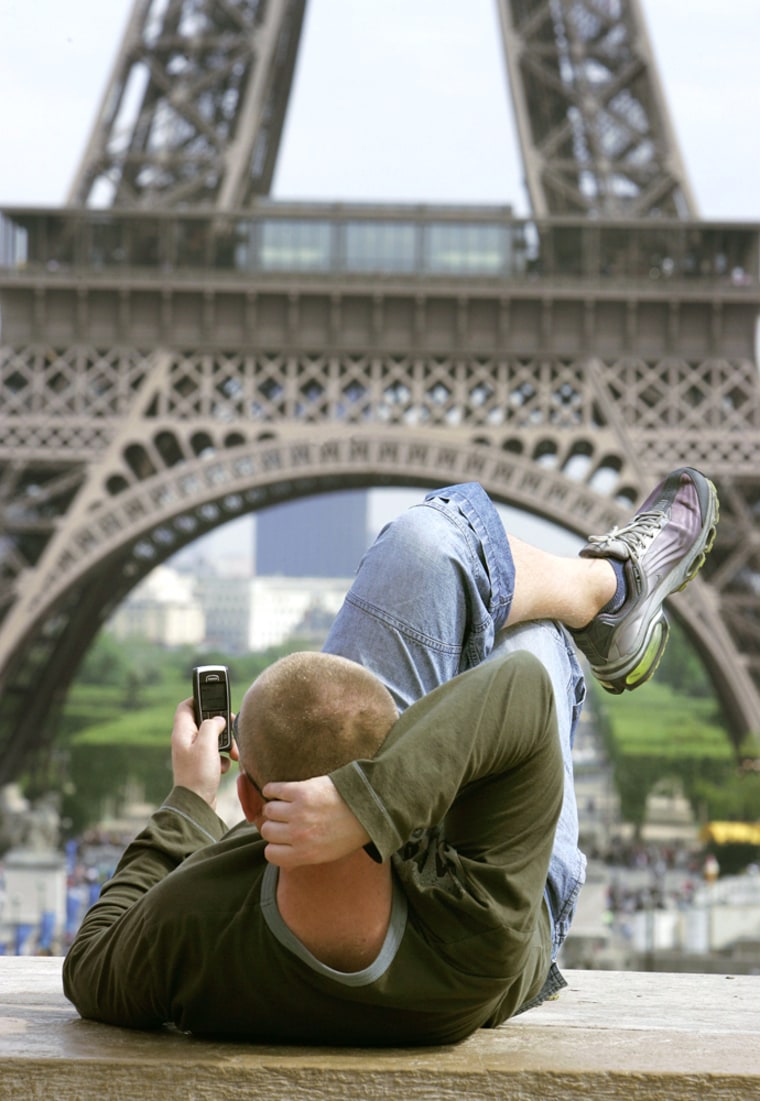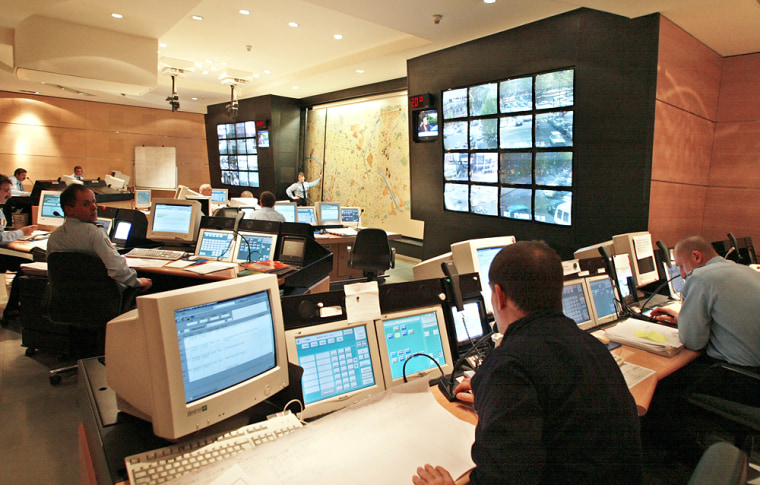Europeans are no strangers to eavesdropping: East Germans endured the all-pervasive Stasi secret police, a French president had a penchant for wiretaps and Britain had “Camillagate” — with Prince Charles taped making a steamy call to his lover.
Perhaps little wonder, then, that many Europeans barely shrug at news that the Bush administration may have collected telephone records on millions of Americans.
Although experts and officials say Europe does not centrally collect telephone data on a massive scale, government surveillance has been increasing since the Sept. 11 attacks. Some say European nations could further boost surveillance if terrorism becomes an even bigger threat.
“If we had a Sept. 11 every year, then citizens, regardless of the country, would doubtless be ready to abdicate a good portion of their rights in this area,” said French lawmaker Alain Marsaud, a former anti-terrorism investigator.
Marsaud, other experts and European Union officials said they were not aware of a European equivalent of the secret telephone database put together by the National Security Agency. The program was reported last week by USA Today newspaper, which said the NSA has records of all calls made by customers of AT&T, Verizon and BellSouth since shortly after Sept. 11, 2001. Both BellSouth and Verizon denied the report.
“German legislation does not allow for this,” said Andreas Middel of Germany’s Deutsche Telekom, Europe’s largest phone operator. While the company does — with a court order — turn over to law enforcement agencies data such as numbers called and the length of calls, it does not provide billing information for more general purposes, he said.
Jan Sjoberg of TeliaSonera, the Nordic region’s largest telecommunications operator, said: “There is nothing today that indicates that this kind of thing is going on, either in Sweden or elsewhere in Europe.”
The Bush administration has declined to specify how the data is being used; President Bush reiterated Tuesday the government was not eavesdropping on Americans.
Sandra Bell, who spent two decades working on counterterrorism technology for Britain’s Ministry of Defense, said she suspects the NSA is building a detailed picture of what constitutes normal phone traffic. That way, spikes in calls to places like Afghanistan or Pakistan, for example, could be easier to spot, perhaps flagging terrorist activity, she said.
Bell likened it to a bank’s ability to track credit card use, enabling them to follow up any unusual purchase to ask if a card had been stolen.
Giving up ‘a little bit of privacy’
“Technology is going at such a pace ... we have to give up a little bit of privacy in order to provide security,” said Bell, who now works for a British security think tank.
“If they are doing what I think they are doing, then I guess my answer is: ’Why on earth wasn’t this done a long time ago?”’ Bell said. “If it is something more sinister then, no, I wouldn’t like it.”
The pendulum swung toward more extensive electronic surveillance in Europe after deadly transit bombings in Madrid and London.
EU governments and the EU parliament this year approved legislation requiring telecommunications companies to retain phone data and Internet logs for a minimum of six months for possible use in terrorism and serious crime investigations.
Changes in the Netherlands
The Dutch secret service has gained vast powers. In 2004, the government passed measures that lowered the threshold for bugging and surveillance. A turning point in Dutch public attitudes came with the 2004 murder of filmmaker Theo van Gogh by a Muslim extremist.

France also has expanded the possible use of video surveillance and phone and Internet data, despite previous wiretapping abuses. President Francois Mitterrand eavesdropped in the 1980s on lawyers, politicians, journalists and celebrities.
A Paris court last November convicted seven people of invasion of privacy for their role in the operation.
In Italy, a Justice Ministry report said the number of authorized wiretaps more than tripled from 32,000 in 2001 to 106,000 last year. Italian phone companies are obliged to keep phone records for at least five years and Internet records for at least one year — the longest of any of the EU’s 25 member nations, according to Italy’s privacy authority.
A delicate balance
That is not a problem for Carolina Lio, a university student from Bologna. “As long as there isn’t a CCTV camera in my house, I am not worried,” she said. “I know the surveillance is not directed against me, but rather to protect me.”
But others warn the delicate balance between security and freedom is being lost.
“Politicians have tapped into this mood of fear,” said British expert Ian Leigh.
“A lot of the safeguards that were erected, first of all in the U.S. in the 1970s, and then in other countries in the ’80s and ’90s following well-documented abuses have been taken down to some degree to fight the war on terror,” he said. “It’s likely that this will store up problems for the future.”
